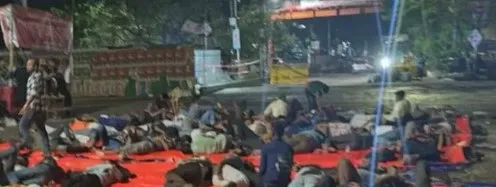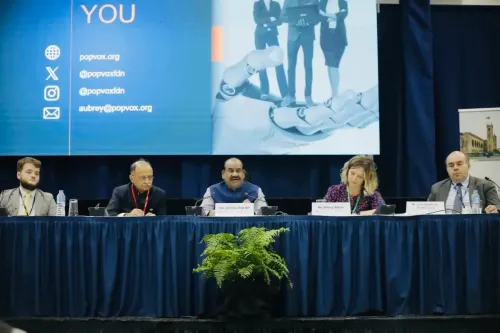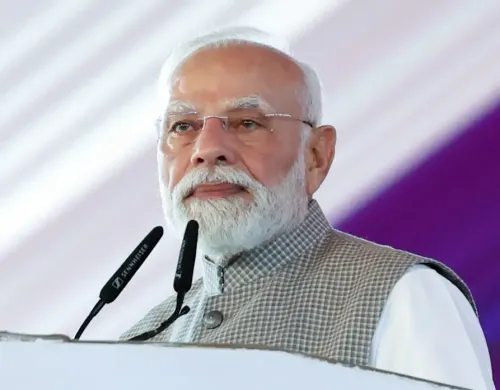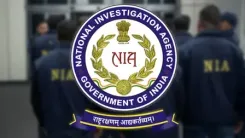Why is the Sit-in Protest in Dhaka Causing Major Disruptions?

Synopsis
Key Takeaways
- Protesters are demanding immediate action on the July Charter.
- Traffic congestion in Dhaka has intensified due to ongoing protests.
- Political parties are divided on key reform issues.
- The NCC aims to facilitate discussions and reach consensus.
- Public response highlights the urgent need for political stability.
Dhaka, Aug 1 (NationPress) A significant number of demonstrators in Bangladesh persist with their sit-in protest at Shahbagh in the capital on Friday, resulting in extensive traffic disruptions and considerable inconvenience for local residents, according to reports from regional media.
The demonstration commenced on Thursday morning, with protesters chanting slogans such as “July niye talbahana, cholbe na, cholbe na” (No more delays on July) and “July sanad dite hobe, dite hobe” (The July Charter must be declared), as they called for the immediate enforcement of the July charter.
“We will remain on the streets until our demands are met,” a protester stated, as reported by Bangladeshi media outlet UNB.
Local media, citing eyewitness accounts, indicated that hundreds of demonstrators had obstructed the intersection in the capital, halting vehicular movement as they urged the National Consensus Commission (NCC) of Bangladesh to finalize the July Charter.
A commuter shared, “I went to Jatrabari in the morning for work, but later found out about the Shahbagh blockade via social media. Concerned about traffic, I took a bus that goes through Basabo, Kamalapur, and Malibagh -- yet the roads were still congested. My journey to Karwan Bazar took over two and a half hours instead of the usual one and a half.”
Meanwhile, during the concluding session of the second round of dialogues on Thursday, the NCC revealed that various political parties had reached consensus on seven reform issues, including the appointment of a caretaker government leader, the establishment of an upper house, and the presidential election. However, six of these agreements faced opposition from the Bangladesh Nationalist Party (BNP) and its allies, as reported by local media.
“Today, a majority of political parties agreed on seven issues, while several, including the BNP, voiced dissent on six of them,” stated Vice-President of NCC Ali Riaz after the final discussions on reforms in Dhaka.
“Our aim was to conclude discussions by July 31, and we have successfully achieved that. We will soon prepare the complete version of the July Charter and share it with political parties,” he added.
Recently, several political entities in Bangladesh, including Jamaat-e-Islami, National Citizen Party (NCP), and Islami Andolon, have expressed objections to the draft of the July Charter.
These parties opposed the stipulation to implement reform proposals within two years of forming the government after national elections, insisting that the July Charter be integrated into a legal framework to guarantee its enforcement.
Last month, the second phase of discussions involving 30 political parties and the NCC commenced amid ongoing political uncertainty and instability in the nation.
The latest round of negotiations aimed to complete the recommendations of various reform commissions established by the interim government led by Muhammad Yunus and to draft the July Charter.
The parties that allied with student leaders and Yunus to oust the democratically elected Awami League government under former Prime Minister Sheikh Hasina are now in conflict over significant reform proposals.









